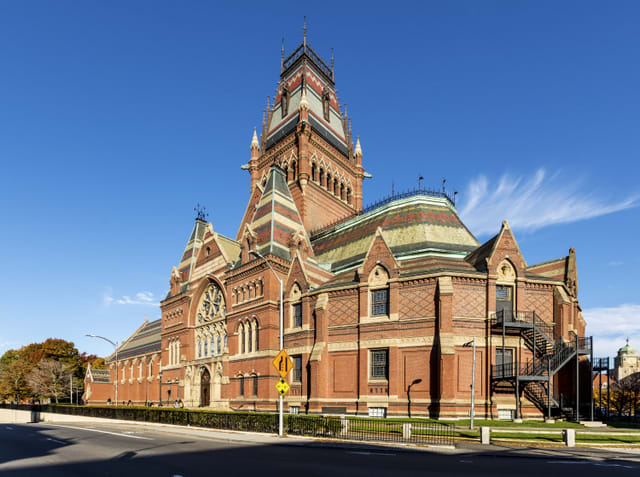Pros and Cons of Continuing into an Academic Career
PhD Students often assume they'll slide right into academic careers, but academia isn't your only option and it's a good idea to consider every possibility. Take some time to consider this list of the pros and cons of an academic position and find out what path is right for you!
- Education


Maybe you planned a career in academia, or perhaps you are like a lot of PhDs and just sort of found yourself collecting degrees like so many butterflies. But regardless of how you ended up as a PhD student, now that you're putting the finishing touches on your dissertation and staring down the gauntlet of a defense committee, you're probably wondering: what am I going to do now? It's a good question to ask yourself. Many PhD students assume they'll complete a post-doctorate or two and then seek a tenure-track position, but an academic position isn't your only option, and you owe it to yourself to consider every possibility. So, without further ado, here's a handy list of pros and cons that can help you decide whether to academia or industry is right for you.
Pros:
1- You have Freedom/Independence
One of the most cited reasons for choosing an academic career is f freedom and independence such positions offer. Academics tend to have more freedom in many areas than professionals in industry because academia is more about theory than practical application. And academia offers a lot of independence – researchers at universities and institutes have more opportunities to design their own research, to choose their own hours, and to focus their work.

2- You can focus on your interests
Because academic positions offer more freedom and independence, chances are your research concentrate on your areas of interest. Sure, you'll probably have to teach History 101 or Conceptual Physics to first-year students, but during your research duties you'll be able to delve into the economic history of Russian folk art or find new ways to harness the sun's energy.
3- You get to mentor younger students
Academic careers offer the best of both world – you can do independent research within your chosen specialty, and you can inspire a new generation of scholars to pursue their own interests. Most post-doctoral positions include some teaching responsibilities, and once you secure a tenured position, you'll be expected to support and mentor Masters and PhD students which can be very rewarding.
4- You get to build a network of international relations
Academic researchers often work on independent projects, but that doesn't mean that they're completely isolated. Universities and institutes are dynamic communities full of talented scholars, and recent administrative trends are increasingly favorable to collaboration. You might work as a team within your department, or across several disciplines. Academic positions also offer a lot of opportunities for international cooperation – whether it's through conferences, researcher-in-residence programs, or guest positions, you'll find many reasons to travel and meet with others in your field.

5- Tenure offers stability AND good compensation
Academics don't always start out in stable, lucrative positions, but that doesn't mean that academia isn't a smart economic choice. Once you've reached a tenured position, you'll have good job security. Plus, senior academics can make wages comparable to their counterparts in industry, and there are plenty of opportunities for advancement into administration and other areas.
Cons:
1- You earn much less money
Yes, a senior tenured professor at a well-respected institution will have both good job security and monetary compensation, but reaching that level can take a long time and is becoming increasingly difficult. Many universities and institutes are moving away from tenured positions and relying on adjunct faculty, and the competition for stable, well-paid positions is very stiff. Industry jobs may not be as flexible or exciting as academic research, but most offer reasonable contracts, with good salaries and room for professional advancement.
2- Pressure and competition
There's a saying in academia: “publish or perish.” Although academics have a lot of freedom within their research fields, there is a lot of pressure both to produce publishable results and to bring in grant money. Academia might seem like a haven for intellectuals, but the reality is that researchers spend a lot of time working towards funding their projects and publishing their results. This can also lead to a lot of competition between academics, which isn't always healthy or welcoming. Industry jobs, which tend to be more team-driven, can offer a much more supportive and constructive work environment.

3- Not everybody makes it: tenure positions are decreasing
Most academics need to complete a post-doc or two before they qualify for an entry-level professor position, and even then there's no guarantee that you'll find a tenure-track position. Universities around the world are slashing their budgets and finding ways to reduce spending, and in many cases that means reducing the number of tenured positions. Universities are increasingly reliant on adjunct and temporary faculty, who often have little or no job security, no benefits, and low wages.
4- It is very unstable (short contracts)
Many PhDs think that they have to choose the academic world or the industrial realm because once they've made their choice, they won't be able to change their mind. But academic positions can be very unpredictable, and even if you decide to pursue a university career, there's a chance that your position won't last more than a year or two. Universities aren't just using non-contract adjunct faculty. Many contracted, non-tenured positions are quite unstable, and academics may find that renewal of their contracts is based heavily on their success at grant-writing and publication. And, moving out of academia into industry doesn't mean that your university career is over. There's a good deal more flexibility than one might imagine, and real-world experience is a valuable skill.

5- Your research pretty much never becomes an application/a product
Academic research careers are great for intellectuals who like the theoretical side of their field, but in many cases researchers at universities will never see their work develop beyond theory and analysis. If you're a more hands-on, real-world results type, an industry job might be more fulfilling because you'll likely see your research developed into something concrete and useful.
So, take some time to consider your options and find a position that suits your life and goals. Many PhDs get a lot of pressure from their departments and advisers to move into academia, but in the end this is a big life decision and it's one you have to make for yourself. A doctorate is a huge accomplishment that can open doors throughout the academic and industrial world.
Read more about doctoral studies.


